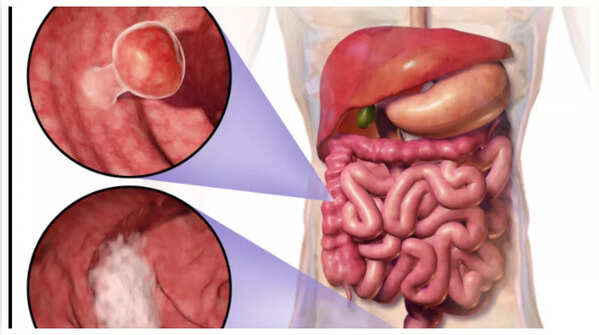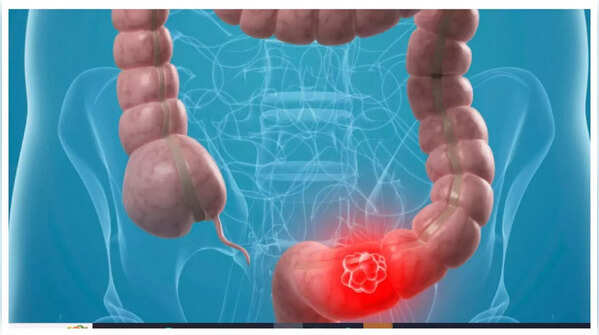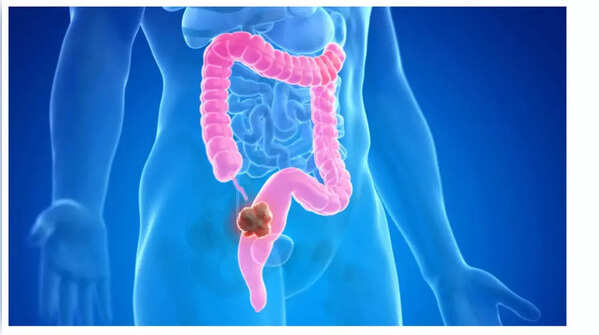Colon cancer, also known as colorectal cancer, develops in the colon or rectum. It often begins as small, noncancerous cell clumps called polyps, which can become cancerous over time. While most cases occur randomly, family history, obesity, and lifestyle can elevate the risk. Symptoms can be subtle, often mistaken for digestive issues. However, certain warning signs should not be ignored.

A noticeable change in bowel habits is one of the earliest signs of colon cancer. This includes:
These changes might seem minor and easily attributed to diet, stress, or infections. However, if they persist for more than a few days or recur, it could indicate colon cancer. Persistent changes suggest a growing tumor may be disrupting normal bowel movements.

Blood in the stool should never be ignored. It can manifest as:
Sometimes, the bleeding is microscopic, leading to anemia over time. While blood in the stool can stem from hemorrhoids or infections, ruling out colon cancer is crucial, especially if it recurs or is accompanied by other symptoms.
Persistent abdominal discomfort is another early symptom that is often overlooked. This may include:
Such discomfort can be mistaken for indigestion or other minor digestive issues. However, if the pain is ongoing and unrelated to diet or lifestyle changes, it could indicate a tumor causing irritation or blockage in the colon.

Feeling unusually tired or weak without a clear reason can be a subtle sign of colon cancer, especially if accompanied by other factors. Slow, unnoticed bleeding in the colon can lead to iron deficiency anemia. This reduces the body's ability to carry oxygen, resulting in fatigue, shortness of breath, and weakness.

Unexplained weight loss is a common symptom in most cancers, including colon cancer. The body's immune system works overtime when fighting cancer, and tumors can affect digestion and appetite. If you notice significant weight loss without changes in diet or exercise, consult a doctor.

Disclaimer: This article is for informational purposes only and does not substitute medical advice. Consult a healthcare professional for any health concerns.
Sources:
Newer articles
Older articles
 India Enters New Space Age as Astronaut Shukla Joins ISS Mission
India Enters New Space Age as Astronaut Shukla Joins ISS Mission
 X Cracks Down: Half a Million Indian Accounts Suspended for Policy Breaches
X Cracks Down: Half a Million Indian Accounts Suspended for Policy Breaches
 Google Unveils Strategy to Combat Misinformation, Boost Voter Access in India's 2024 Elections
Google Unveils Strategy to Combat Misinformation, Boost Voter Access in India's 2024 Elections
 Hair Oil vs. Hair Serum: Which is the Right Choice for Your Hair?
Alternatively:
Unlock Your Best Hair: Choosing Between Hair Oil and Serum for a Healthy Mane
Hair Oil vs. Hair Serum: Which is the Right Choice for Your Hair?
Alternatively:
Unlock Your Best Hair: Choosing Between Hair Oil and Serum for a Healthy Mane
 Bollywood's 'Swades' Anthem Joins Axiom-4 Mission: Indian Astronaut's Playlist Honors Heritage in Space
Bollywood's 'Swades' Anthem Joins Axiom-4 Mission: Indian Astronaut's Playlist Honors Heritage in Space
 Vijay Sethupathi Apologizes Amid Controversy Over Son's Film 'Phoenix'
Vijay Sethupathi Apologizes Amid Controversy Over Son's Film 'Phoenix'
 New York Assemblyman Zohran Mamdani's Style: 5 Lessons in Authenticity and Heritage
New York Assemblyman Zohran Mamdani's Style: 5 Lessons in Authenticity and Heritage
 Colon Cancer: Don't Ignore These 5 Early Warning Signs
Colon Cancer: Don't Ignore These 5 Early Warning Signs
 TSMC Regains Top 10 Global Value Ranking Amid AI Boom
TSMC Regains Top 10 Global Value Ranking Amid AI Boom
 Android Users Urged to Update Devices Amid High-Severity Security Flaws: Government Issues Warning
Android Users Urged to Update Devices Amid High-Severity Security Flaws: Government Issues Warning